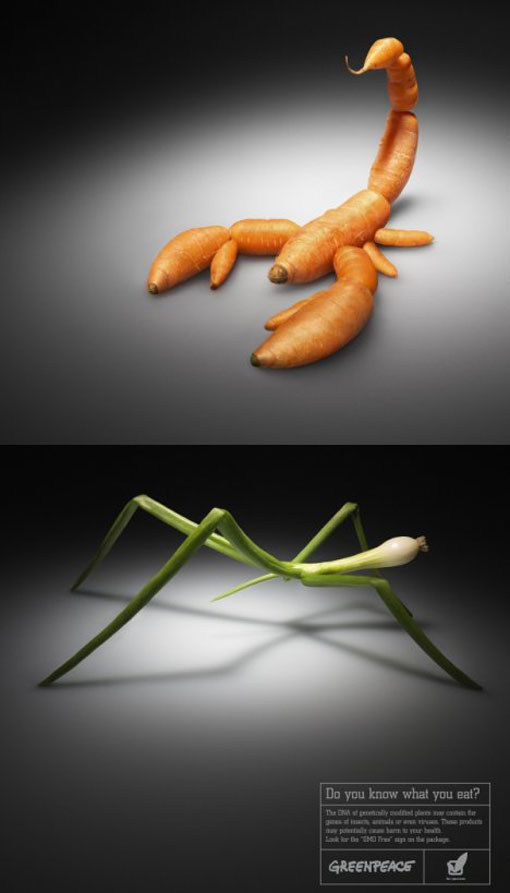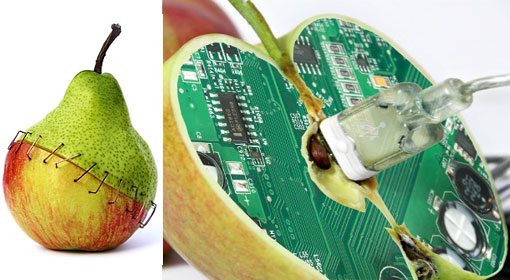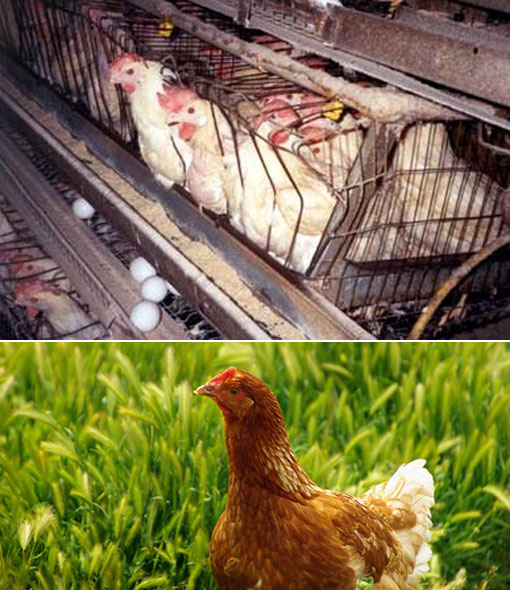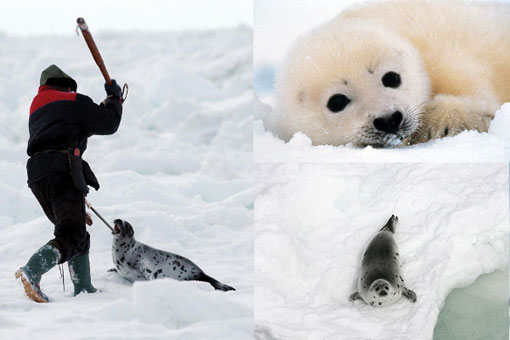You are hereBlogs / WcP.Observer's blog / France: GM corn linked to cancer. EU bans 7 GM foods, battery cages, animal testing, seal imports, condemns whaling...
France: GM corn linked to cancer. EU bans 7 GM foods, battery cages, animal testing, seal imports, condemns whaling...





(quote)
*update* Jan. 14, 2013 EU releases all data on GM corn linked to cancer Monday's move "aims to make data used in risk assessment publicly available," Geslain-Laneelle said, by promoting research and working with scientists.
*update* Siding with EU's ban on animal testing, Dec. 21 2012 Air Canada can refuse to ship monkeys for research
Seven Food Products Banned in Europe Still Available in the U.S.
1. Genetically Modified Foods
2. Stevia, the Natural Sweetener
3. Bovine Growth Hormone
4. Chlorinated Chickens
5. Food Contact Chemicals
6. Herbicides, Fungicides and Insecticides
7. Planned Ban: Food Dyes
Europe-wide ban on Monsanto GM corn imminent in wake of French study linking it to cancer
Pending affirmation by its national health agency, France is expected to call for an official ban on Monsanto's genetically-modified (GM) corn very soon "at a European level," according to the French news source RFI. Following the recent release of a University of Caen study that found a link between the "Frankencorn" and the development of severe tumors in rats, French officials have been urging a Europe-wide ban on both the cultivation and import of the GM corn, which was never proven safe in the first place prior to its commercial release.
The study, which was published in the peer-reviewed journal Food and Chemical Toxicology, revealed for the first time that rats fed Monsanto's NK603 GM corn treated with Roundup (glyphosate) herbicide for longer than 90 days developed deadly tumors at a much higher, and much quicker, rate than rats not exposed to these products. Similar health consequences were observed in rats fed NK603 GM corn without Roundup, as well as in rats exposed to just Roundup, revealing more about the true toxicity of these two highly-pervasive food technologies.
What the study suggests, in other words, is that GMOs are far from innocuous, and that they pose some very serious health threats when consumed for long periods of time. Since there have never been any other long-term studies on the safety of GMOs -- and definitely none that have ever proven them to be safe -- it makes logical and scientific sense to adopt the precautionary principle in light of the available evidence, which is heavily stacked against the continued purveyance of GMOs.
"'Several animal studies indicate serious health risks associated with GMO food,' including infertility, immune problems, accelerated aging, faulty insulin regulation, and changes in major organs and the gastrointestinal system," says the Institute for Responsible Technology (IRT). "The AAEM (American Academy of Emergency Medicine) asked physicians to advise patients to avoid GM foods."
Russia Bans GMO Corn Over Cancer Fears as Pressure Builds on Monsanto
Following an explosive French study suggesting a link between Monsanto’s controversial genetically engineered corn and cancer, Russian authorities have temporarily suspended all imports and use of the biotech GMO product until further safety testing can be performed. Officials worldwide are reportedly investigating the matter as well.
Russia’s consumer-protection agency, known as Rospotrebnadzor, announced the decision last week, saying it had ordered the country’s Institute of Nutrition to investigate the recent French university study. The regulatory agency has also reportedly asked the European Union for its views as the European Food Safety Authority vowed to review the research. "Until we receive the full information in this case, the import and sale of genetically modified NK603 corn is being temporarily suspended," the Russian agency said in a statement posted on its website.
France to maintain ban on GMO crops: PM
French and European farmers have voiced fears the restrictions could make them fall behind in the competitive world grain market, and the EU said in May it was considering ordering the government to lift its moratorium. However, in a country that is fiercely protective of its agriculture, regarding it as part of its national identity, the government faces strong public resistance to GMO crops, as well as to the use of chemicals in farming.
Earlier this year a French court found Monsanto guilty of chemical poisoning after a farmer from the south-eastern town of Lyon claimed he had suffered neurological problems caused by inhaling one of the biotech giant's weedkillers. Underscoring the sentiment, Ayrault said the government also intended to ban crop dusting, the use of aircraft to spray pesticides over wide areas, except in cases where there was no viable alternative. The move was part of a broader plan to reduce the use of chemicals in farming, the prime minister said.
The two-day conference, which brought together NGOs, MPs, industries and consumers, is set to become an annual event as part of President Francois Hollande's plan to put the environment back at the top of the international agenda.
(Reporting By Marion Douet; Writing by Vicky Buffery; Editing by William Hardy)
What countries have banned GMO crops?
While GMO crops are quickly taking over the landscape in the United States and Canada, not all countries have embraced these questionable crops. Here's a list of countries (and U.S. counties) that have banned genetically modified crops in one way or another.
In New Zealand: No GM foods are grown in the country.
In Germany: There is a ban on the cultivation or sale of GMO maize.
In Ireland: All GM crops were banned for cultivation in 2009, and there is a voluntary labeling system for foods containing GM foods to be identified as such.
In Austria, Hungary, Greece, Bulgaria and Luxembourg: There are bans on the cultivation and sale of GMOs.
In France: Monsanto's MON810 GM corn had been approved but its cultivation was forbidden in 2008. There is widespread public mistrust of GMOsthat has been successful in keeping GM crops out of the country.
In Madeira: This small autonomous Portugese island requested a country-wide ban on genetically modified crops last year and was permitted to do so by the EU.
In Switzerland: The country banned all GM crops, animals, and plants on its fields and farms in a public referendum in 2005, but the initial ban was for only five years. The ban has since been extended through 2013.
Peru Bans Genetically Modified Foods for 10 Years: [Dec. 2, 2012] Anybody planning to sneak genetically modified seeds into Peru should think twice – the country has just launched a historic ban on GMOs. Following a long struggle by the last administration’s environment minister Antonio Brack and several activist groups, current President Ollanta Humala signed a law last year that prohibits the import, production or use of GMO foods for the next ten years. The law went into effect last week, and would-be violators face huge fines.
European Union Bans Battery Cages for Egg-Laying Hens
As of Jan. 1, 2012, egg-laying hens across many European countries will live with fewer discomforts: The European Commission has officially implemented its ban on battery cages, the notoriously cramped cages used by many egg farmers and criticized by animal rights proponents and veterinarians who call them cruel and harmful to the birds’ welfare.
Battery cages first gained favor among farmers by introducing a new standard of hygiene and reducing the spread of infectious diseases among flocks. The cages were bigger at first, too, and housed one bird per cage. Today, a single cage will typically house multiple birds, leaving little to no room for walking or stretching.
European Union BANS full body airport scanners over safety concerns...
Controversial airport 'strip-search' full body scanners are to be scrapped after they failed to get approval from European bosses. Experts feared the 'naked' body scanners, which use X-ray technology to show up hidden explosives or weapons, could emit harmful levels of cancer-causing radiation.
EU Parliament Takes Strong Stand Against Japanese Whaling in Trade Talks
BRUSSELS, BELGIUM, Oct 12, 2012 (MARKETWIRE via COMTEX) -- European Parliamentarians have taken a strong stand against whaling as part of EU-Japan trade negotiations. The EU's International Trade Committee (INTA) has adopted several amendments, tabled by MEP David Martin (S&D), which note serious divergences between the EU and Japan on issues related to the management of fisheries and whaling, notably Japan's whaling under the guise of science. One amendment calls for, amongst other things, an "end to this so-called scientific whaling and support (for) the designation of substantial regions of ocean and seas as sanctuaries."
These amendments from EU Parliamentarians demonstrate continued concern for animal welfare in relation to trade. In 2011, EU Parliament voted in favour of an amendment relating to Canada's commercial seal hunt, requesting that Canada withdraw its World Trade Organization challenge of the EU ban on seal products or jeopardize the Canada-EU trade agreement (CETA). The amendment states that the EU "takes note of the recent legal developments regarding the EU's ban on seal products, in particular Canada's request to the WTO for the establishment of a formal dispute resolution panel; and expresses its strong hope that Canada will withdraw the WTO challenge, which is counter to positive trade relations, prior to the need for ratification of the (Comprehensive Economic Trade Agreement) by the European Parliament."
The INTA Committee emphasised the need for "a robust and ambitious sustainable development chapter" that will "also include the establishment of a civil society forum that monitors and comments on," among other things, "the effective implementation of multilateral agreements on the environment, animal welfare and the conservation of biological diversity."
"Today the International Trade committee reiterated its total opposition to commercial and so-called scientific whaling," said MEP David Martin. "As the EU comes closer to launching negotiations with Japan for a free trade agreement we call on Japan to review its whaling strategy and respect the global ban on this outdated and barbaric practice."
Since 1987 Japan has killed more than 13,000 whales in its two 'scientific whaling' programs.
"The EU supports the global ban on commercial whaling and this trade deal must reflect this position" concluded Slee.
US and EU countries officially condemn Iceland's decision on whale hunting
The UK and 25 other countries have condemned Iceland's whaling policy, putting pressure on the country's bid to restore its collapsed economy by joining the EU.
The countries, which included the US, Germany, France, Portugal and Spain, welcomed the decision of its new government to review the number of whales it hunts each year. But today issued a formal diplomatic position, or démarche, to the Icelandic ambassador in the UK as animal welfare activists demonstrated outside the Icelandic government's London embassy in protest against the country killing 125 fin whales and 79 minke whales in recent months
"We were deeply disappointed with the former Icelandic government's decision to authorise the hunting of fin and minke whales over the next five years on 27 January 2009. The authorisation was put in place without presentation to the International Whaling Commission (IWC) and without regard for the long term interests of cetacean conservation", said the diplomatic note.
It added: "We wish to express our support for the government of Iceland's decision [by the current Icelandic left-green coalition government] to review and reassess its position on the hunting of whales. We encourage Iceland to adhere to the internationally agreed moratorium on commercial whaling and to re-examine the decision to increase its fin and minke whale quota. We remain extremely concerned with Iceland's reservation, entered in 2000, for these and other cetacean species. We urge Iceland to withdraw this reservation and safeguard these species from international trade".
Robbie Marsland, UK director of the Internation Fund for Animal Welfare (IFAW), said: "We ask Iceland, what is the point of slaughtering whales? Iceland has killed more than 200 whales including 125 endangered fin whales – yet no market has been found for fin whale meat."
EU Bans Seal Imports, Takes Aim At Canada's Seal Hunt
STRASBOURG, France — The European Parliament voted overwhelmingly Tuesday to ban imports of seal products, including fur coats and even some omega-3 pills, in an effort to force Canada to end its annual seal hunt, the world's largest.
The European Parliament voted to endorse a bill that said commercial seal hunting, notably in Canada, is "inherently inhumane." EU governments still need to back the law, but officials called that a formality and said the ban is expected to take effect in October.
The EU ban will apply to all products and processed goods derived from seals, including their skins _ which are used to make fur coats, bags and adorn clothing _ as well as meat, oil blubber, organs and seal oil, which is used in some omega-3 pills.
Canada's East Coast seal hunt is the largest in the world, killing an average of 300,000 harp seals annually. The EU bill targeted the Canadian hunt because of the size of the annual slaughter and the way seals are killed _ either clubbed or shot with rifles. In the past, they have also been killed with spiked clubs, or hakapiks.
Seals are also hunted in Norway, Namibia, Sweden, Finland, Britain and Russia.
*update* Dec. 21 2012 Air Canada can refuse to ship monkeys for research Air Canada has been given the go-ahead to stop flying primates of the non-human variety.
The Canadian Transportation Agency ruled on Thursday that Canada’s largest airline can refuse the shipping of monkeys for laboratory research purposes.
The petition to the agency was made last year “to align our policies with those of many other major international carriers and in response to widespread public concern,” said Air Canada spokesman Peter Fitzpatrick. It followed a similar request from 1996 that was refused.
*update*
11Nov2014 - European lawmakers have voted to give EU member states the power to ban cultivation of genetically modified crops on their territory even if they have been approved by the 28-nation bloc. Gilles Pargneaux, a member of the Socialists and Democrats group in the European Parliament, says the vote "brings more legal certainty to member states willing to limit or ban GMO cultivation in their territory." Environmentalists welcomed the vote by the parliament's Environment, Public Health and Food Safety Committee.
(unquote)
Photos courtesy of divinecaroline.com, GreenPeace, santacruz.com, fooddigital.com, animalsaustralia.org, veganpeace.com, European Commission, Vegan Peace, One Green Planet and Getty / AFP


















